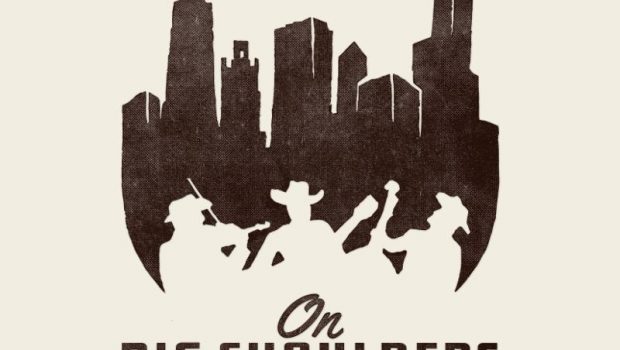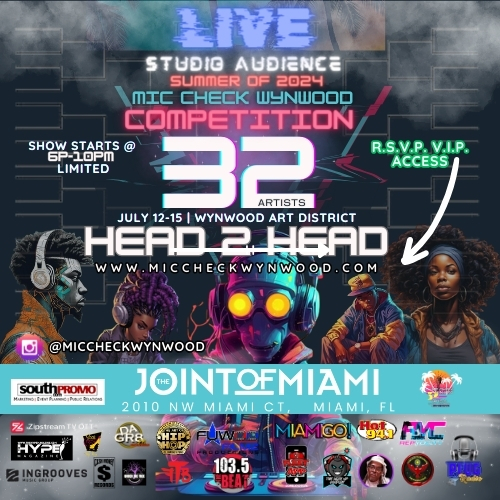On Big Shoulders Pays Tribute to Chicago’s Rich Musical History
Chicago, at its very core, is a city of sound. While the storied hub of hard work is well known for its hunger and heart, the town’s history is surely shaped as much by its music as its muscle. Old Town School of Folk Music teacher and old-time musician Matt Brown recently set out to tell that story, a project that would become On Big Shoulders. Brown recruited some of Chicago’s most skilled players: guitarist and vocalist Steve Dawson; pedal steel player Brian Wilkie; bassist Aaron Smith; drummer Gerald Dowd; singers Keely Vazquez, Gia Margaret, Elise Bergman, and Liz Chidester; and horn players Anna & Evan Jacobson. With his own fiddle and GRAMMY-nominated co-producer Liam Davis singing and playing keys, the group headed to I.V. Lab Studios. Set for release on November 2, 2018 via Allograph Records, the ten song album features songs like Wilco’s “It’s Just That Simple”, “Heavy Traffic Ahead” by Bill Monroe, Sam Cooke’s “I’ll Come Running Back to You”, “Long Tall Mama” by iconic Chicago blues artist Big Bill Broonzy, and “How Lonely Can You Be?” by alternative country artist Robbie Fulks. Fans can purchase the record on both CD and vinyl formats, available for pre-order today.
From the electric blues, gospel, jazz, and folk clubs of its past to the Americana, hip-hop, house music, and writhing post-rock of more recent years, Chicago is a musician’s town—but more precisely, and in the spirit of its indomitable industry, it is a town for the working musician.
In early 2016, an opportunity to showcase these strengths occurred to one transplant making his living in the Windy City. Matt Brown, a teaching artist since 2011 at the storied Old Town School of Folk Music and an established old-time musician who is active in Chicago’s American roots music scene, sought to highlight the city’s musical prowess. “I was getting more familiar with the recently dubbed ‘Americana’ genre and wanted to make an Americana record using Chicagoland musicians,” Brown says. “I wanted it to be a representation of the strength of Chicago’s current working musicians but also its legacy of being a place where musicians come to make records. It would pay a small tribute to that enormous legacy with fresh renditions of songs already associated with Chicago, along with original compositions inspired by the musicians who have lived and worked here for the last century.”
As executive producer, Brown set out to select songs and recruit local players for the project. He built a core band of musicians with whom he’d had exceptional recording and performing experiences, a pocket comprising Steve Dawson (vocals & guitar), Brian Wilkie (pedal steel & guitar), Aaron Smith (bass), and Gerald Dowd (drums). Eight other musicians — from vocalists Keely Vazquez and Gia Margaret to Brown’s co-producer and right hand Liam Davis — make appearances on the album, each closely connected to Brown’s musical work within the city.
As the scope grew, it became apparent to Brown that the album required a legitimate location on the level of a Nashville session studio. He settled on a Chicago room where he’d overdubbed fiddle for a friend’s record that came with an ace engineer, Shane Hendrickson. That friend’s record was produced by Liam Davis, whom Brown later tapped to co-produce this project. Leading the recording sessions at I.V. Lab Studios, and later editing and mixing the tracks in his home studio, Davis oversaw the sonic approach to the recordings and stewarded the arrangements. “The approach to each song was a collaborative effort between myself, Matt, and the band—each interpretation was the result of that alchemy,” Davis says.
With the help of a grant from the City of Chicago’s Department of Cultural Affairs and Special Events, Brown secured both his group and his home base — he just needed to finalize his setlist. In the process of preparing lessons for his students at the Old Town School, he had discovered that some important songs in the history of bluegrass and country music had been recorded in Chicago by transient artists who came to town to work in their labels’ studios. He had taught The Delmore Brothers’ “Brown’s Ferry Blues” in a guitar class and was delighted to find that the rural Alabamians had also recorded “I’m Mississippi Bound” in the city. He would choose the latter as the first song for his collection, as it represented a key link for Illinois to the heritage of Southern country music and the Grand Ole Opry.
As Brown dug deeper, he turned up more interesting facts: for example, the first time that bluegrass luminary Bill Monroe recorded with Earl Scruggs and Lester Flatt as The Blue Grass Boys was in Chicago; Monroe’s “Heavy Traffic Ahead” leads off the album. Another luminary in the city’s scene, Big Bill Broonzy, had direct connections to the Old Town School as a workshop teacher; the bluesman was present the night the school first opened, and his guitar is now on display there. His “Long Tall Mama” ends the album. “I’m not a native of Chicago so this was a learning experience for me,” Brown says. “Most of the covers came from me asking musician friends or colleagues to share their knowledge about the music made here. It’s a dose of music that ranges widely through the emotional spectrum.”
Two songs came to the project from a pair of Chicago’s favorite alternative artists: alt-country troubadour Robbie Fulks, who penned “How Lonely Can You Be?” as an exclusive commission, and alt-rockers Wilco, who are celebrated with a glorious cover of “It’s Just That Simple,” written by their bassist John Stirratt for their 1995 debut album. Surprises abound as well — from “I’ll Come Running Back to You” by Sam Cooke, whose Chicago associations are not as widely known, to the Chess Records deep cut “Shake Your Head” originally performed by living legend Barbara Carr.
Davis and Brown recorded the majority of the album live and some tracks are entirely without edits. A large part of the record’s magic comes from the energy and palpable chemistry felt by its players. After mastering was complete, Brown raised over $26,000 on Kickstarter, sufficient funds to create his own Allograph Records and release the album on it. Davis named the project On Big Shoulders in reference to the Carl Sandburg poem about Chicago as well as the musicians who carry it. “My hope is that this is part of the ongoing conversation about the history of Chicago and America’s music scenes and how they’re connected,” Brown says. “Chicago is huge in terms of population but its music scenes are tight. It has a well-deserved reputation as a working musician’s town; it’s a place you can come to play gigs because there are gigs to be played. The way that On Big Shoulders lines up with that historical aspect—the fact that the players on the record embody that spirit and sense of hustle—is a very compelling thing.
Tweet








































